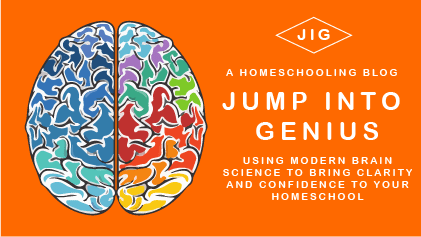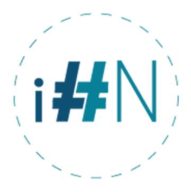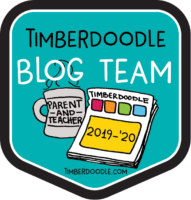I am writing this post especially for all the homeschool mom’s out their who review products. This could also be helpful if you are an eclectic homeschooler. If you use a packaged curriculum of any sort, you probably don’t need to read this. This is about organizing your child’s education, not the writing side of a product reviewers life.
If you found yourself overwhelmed last year, with different products, too many reviews due in one week, or felt like your child’s education turned into chaos, I have a few tips to help calm the waters.
Of course, we have to know we are choosing the ocean, a big world of freedom, there will always be waves in our world. But if we learn to ride the waves, no matter how small or large, we can navigate the ocean without falling out of our boat.
Prioritize
First, separate the subjects into two categories. Skills and content. Math is a skill, handwriting is a skill, learning to read is a skill. Science is content, history is content, electives are content.
Don’t skimp on skills. You need to have an action plan in place to cover all the skills for the next school year. It may be a product you already reviewed and have access too. It may be something you buy yourself. You can still review skill products, but I would take them on with more caution. I would be picky about the product being a good match for my child’s level/ability. If a reading program looks awesome and you are not happy with what you are currently doing, go ahead and try it. But don’t sign up just because it looks pretty.
Plans for content can be looser because content is more flexible by nature. It does not matter what my 8th grader does for science this year, he knows more science than most adults. It does matter what he does for math. Although he is ahead, math is a subject where it matters. Being ahead can get him through college sooner and cheaper. As far as science, he can probably CLEP or AP out of those classes whenever he feels like spending a month or two studying for the test.
Also, keep in mind any subject that is a struggle for your child. Find the best product you can for that subject. Buy it and try to stick to it and give it a real chance for success. Try to keep this to one area if at all possible. For me it is spelling. Spelling is the hardest skill for my kids to master. I am buying the things I truly believe will help them. I will use them all year, even if some days I think it is stupid or it makes me angry. At the end of the year, they will have their assessment tests and we will see if it worked.
If it works I will be able to write a really great review for the products I am trying. Companies that make awesome products deserve a shout-out, whether or not we got the product for free.
I am a reviewer because I want to help the diamonds rise to the top of the haystack. And because I love writing and trying new things.
After you have sorted out skill areas and decided on the one thing you want to improve this year you are ready to start planning.
Bundle
My solution begins with a basket. Get out a basket for each kid.
Or a bin. Or a cardboard box. You can use whatever you have on hand, don’t make this step overly complicated. Just get a large container of some sort.
Start loading the baskets with your materials.
Put the handwriting workbook in the basket. Or print the handwriting sheets and put them in there. Or write on an index card what you are planning to buy, or which website you are going to print sheets off of and put it in the basket.
Do this for every subject and every skill you want to cover this year. As the start of your school year or term draws closer make sure you have everything you need for a week, or a month. You can plan as you go, but failing to plan at all will just make you feel overwhelmed. Without a plan, you will probably always feel like there is too much to do and you can’t get it all done.
Sometimes the things you load in your basket will be your back up plan, the stuff you use if nothing better comes along. For other subjects it will be a basics plan, something that will cover what is needed so you can add things that come along on top of it without being over committed. (You could put something like a Brain Quest workbook in if you just want to know you covered the basics for the grade-level.) Sometimes the thing in your basket is a complete full program you love and you are not going to drop to review a product in that subject area.
The process of gathering everything and getting it in the container will help you get it all sorted in your brain, so you don’t forget which areas you are interested in reviewing products for, and which ones you do not want to take on a review because you already have a full program you love.
So have a plan, but keep it loose and easy to adapt. Know which resources you will start with. Know what you have access too, make a simple list of all the products you have at your disposal. But don’t feel like you have to use them all, this is just your free shopping list. The reward you get for all the work you put in with the reviews. And if your budget allows, don’t feel guilty about buying a few products that you either need (for me spelling), or your child wants (my 8th grader wants to study Astronomy).
You don’t have to plan for the whole year, you cannot plan for the whole year if you take on curricula throughout the year to use and review. But you can leave room in your basket for that. You can put one-month of history or science into the basket at a time. You can pick a book for literature. You can have a list of books you may use, order as needed, or cross them out when you sign on to a review a product that will make a good replacement.
You can cross out anything under content just because something came up and your child will need time to do it. It is okay to take things out of the basket or bin. We have to because as we take things on, other things have to be dropped off. It is not fair to our kids to just ask them to constantly be doing extra stuff just because we are a reviewer.
It is okay if one month you end up doing a lot of history and another month you don’t do any history.
But we need to keep up with the skills, don’t cross them out. Switch programs for skills with caution. Publishers each have their own way of progression, 1st-grade math from program to program varies more than you think. It will not be easy for your child to hop around from program to program in skill areas. This is why there are programs that instruct you to start at the beginning, even if you have an older child, because they know they laid a specific foundation and that if your child was not in their program before they are likely missing the foundation needed to excel at higher levels.
The point of planning is that having a plan in place makes more room in your brain. It means you have fewer daily and weekly decisions to make. It means there is more peace, both inside in you, and in your home.
When you have a plan or vision, or basket full of stuff, it becomes much easier to see what you can realistically do, if you can take on the product, and how it will you fit it into your child’s year.
Add Visuals
Visuals help us remember our focus.
I wrote a list of the visuals I will be hanging on the walls this year.
Plan a rhythm for your days and weeks
Choose an order for your day.
Keep in mind the big picture of the things your kids’ brain needs for health.
When you have a consistent rhythm it becomes much easier to tweak that rythym. You can change something up easily because you are working within a basic framework that is on auto-pilot.
For mindset level tips on creating your schedule/daily rhythm check out my post Avoiding Overwhelm from the Inside Out.
I hope you found some of these ideas helpful, even if they just got your own creative organization ideas flowing.
We all need different systems, for different reasons, at different times in our life.
I wanted to share this because being a product reviewer takes the challenge of organizing your homeschool to a whole new level.
Do you have other tips that help keep you sane as you teach, run a home, and review products? Share in the comments, we can never have too many ideas about how to make it work.
Oh, and consider joining my e-mail list and getting my freebie. Many of the questions can be used to help you decide which products to sign up to review, and I only send an email once a month, so I WILL NOT flood your inbox!
Happy Planning!



8 Responses
Years ago when my kids were little, I could have - or should have! - planned better! We somehow got (almost) everything done, even once we were reviewing products, with my plan-as-you-go method though. Now that I think about it, my method was very similar except without the bins!
It sounds like you planned just enough! The point of planning to me is to avoid overwhelm.
Great ideas! It can be so overwhelming getting it all done if we aren’t’ careful.
Yes, just having a base to work from and a clear path through tomorrow can do so much to help us avoid overwhelm.
It is true that you need a plan, I’ve just always held mine loosely in case God decided to change our course for the year.
Yes, mine plans are loose too, I can take things out of the bin to switch them up whenever needed. It just helps me to see what can easily be switched and to make sure I have a clear path through the next chunk of time.
I don’t use bins eithet, bookshelf does the job for me. I like your division of skill vs content
Yes, bookshelves work if you have enough of them near your work area, we don’t so the bins help.